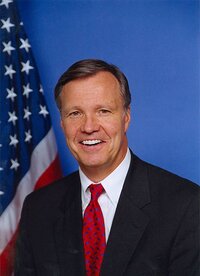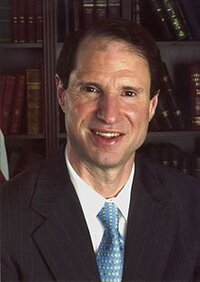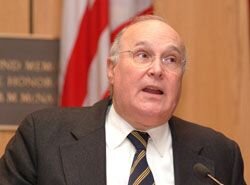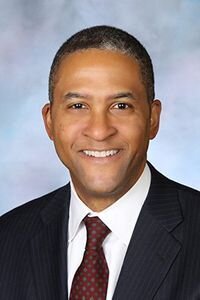PPEcel
cope and seethe
-
- Joined
- Oct 1, 2018
- Posts
- 29,089
Twenty-six words.
Twenty-six years.
On February 8th, 1996, the following twenty-six words of 47 U.S.C. § 230(c)(1) came into effect:
We can't overstate how important these twenty-six words were in developing the internet and social media as we know it today.
History
In October 1994, an anonymous user on Prodigy's Money Talk bulletin board accused Stratton Oakmont, Inc., an investment banking firm, of fraud. Stratton Oakmont sued Prodigy for defamation, arguing that Prodigy was a publisher responsible for their users' speech, and prevailed in New York Supreme Court. See Stratton Oakmont, Inc. v. Prodigy Services Co., 23 Media L. Rep. 1794.
At the same time, the federal district court in Manhattan decided the exact opposite in Cubby, Inc. v. CompuServe Inc., 776 F. Supp. 135 (S.D.N.Y. 1991)—that forum operators (i.e. the 90s equivalent of social media companies) were distributors, not publishers.
Congress decided that it had to resolve this conflict, and they did so in favor of the Cubby decision. These twenty-six words, part of the Communications Decency Act, were the brainchild of two U.S. Representatives: Christopher Cox (R-CA), and Ron Wyden (D-OR):


The following year, the United States Supreme Court struck down most of the Communications Decency Act on First Amendment grounds—but not Section 230. Justice John Paul Stevens, joined by six other justices, noted that:
What does Section 230 do?
Generally speaking, Section 230 protects interactive computer service providers from civil liability resulting from their users' content. These providers include not only multinational corporations such as Facebook and Google, but also operators of smaller platforms such as Kiwi Farms and, yes, incels.is.
As Jeff Kosseff, Assistant Professor of Cybersecurity Law at the U.S. Naval Academy, wrote in his 2016 article in the Columbia Science and Technology Law Review:
We would like to thank all the judges, state and federal, whose incredibly based rulings have upheld Section 230 protections. There are too many of them to name, but here is a special shoutout to U.S. District Judge Valerie Caproni of the Southern District of New York; and U.S. Circuit Judges Dennis Jacobs, Raymond J. Lohier, and Reena Raggi of the Second Circuit. If you know, you know.




Happy 26th birthday to Section 230!





Twenty-six years.
On February 8th, 1996, the following twenty-six words of 47 U.S.C. § 230(c)(1) came into effect:
No provider or user of an interactive computer service shall be treated as the publisher or speaker of any information provided by another information content provider.
We can't overstate how important these twenty-six words were in developing the internet and social media as we know it today.
History
In October 1994, an anonymous user on Prodigy's Money Talk bulletin board accused Stratton Oakmont, Inc., an investment banking firm, of fraud. Stratton Oakmont sued Prodigy for defamation, arguing that Prodigy was a publisher responsible for their users' speech, and prevailed in New York Supreme Court. See Stratton Oakmont, Inc. v. Prodigy Services Co., 23 Media L. Rep. 1794.
At the same time, the federal district court in Manhattan decided the exact opposite in Cubby, Inc. v. CompuServe Inc., 776 F. Supp. 135 (S.D.N.Y. 1991)—that forum operators (i.e. the 90s equivalent of social media companies) were distributors, not publishers.
Congress decided that it had to resolve this conflict, and they did so in favor of the Cubby decision. These twenty-six words, part of the Communications Decency Act, were the brainchild of two U.S. Representatives: Christopher Cox (R-CA), and Ron Wyden (D-OR):


The following year, the United States Supreme Court struck down most of the Communications Decency Act on First Amendment grounds—but not Section 230. Justice John Paul Stevens, joined by six other justices, noted that:
Reno v. American Civil Liberties Union, 521 U.S. 844, 870 (1997)Through the use of chat rooms, any person with a phone line can become a town crier with a voice that resonates farther than it could from any soapbox. Through the use of Web pages, mail exploders, and newsgroups, the same individual can become a pamphleteer. As the District Court found, "the content on the Internet is as diverse as human thought." 929 F. Supp., at 842 (finding 74).
What does Section 230 do?
Generally speaking, Section 230 protects interactive computer service providers from civil liability resulting from their users' content. These providers include not only multinational corporations such as Facebook and Google, but also operators of smaller platforms such as Kiwi Farms and, yes, incels.is.
As Jeff Kosseff, Assistant Professor of Cybersecurity Law at the U.S. Naval Academy, wrote in his 2016 article in the Columbia Science and Technology Law Review:
Section 230's market-based approach to law is consistent with the First Amendment and encourages decentralized and robust speech on the Internet. As judges consider the increasingly difficult First Amendment cases, they should keep in mind the fundamental First Amendment values that the statute has protected for two decades.
We would like to thank all the judges, state and federal, whose incredibly based rulings have upheld Section 230 protections. There are too many of them to name, but here is a special shoutout to U.S. District Judge Valerie Caproni of the Southern District of New York; and U.S. Circuit Judges Dennis Jacobs, Raymond J. Lohier, and Reena Raggi of the Second Circuit. If you know, you know.




Happy 26th birthday to Section 230!

Last edited:







